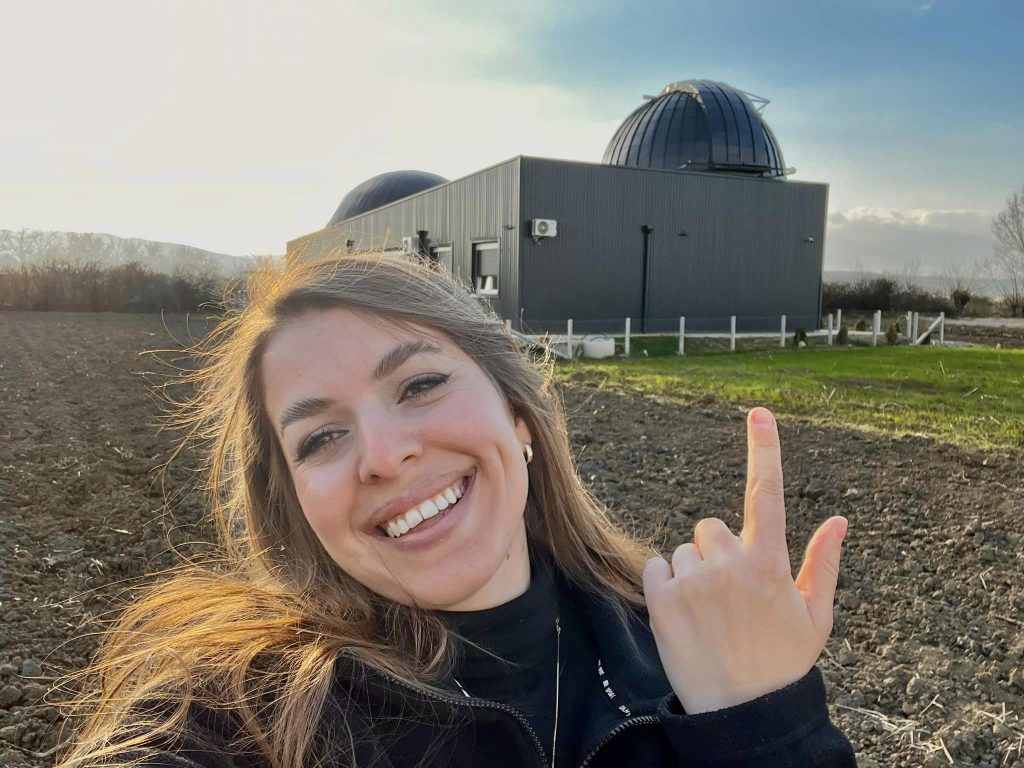Ph.D. student Pranvera Hyseni has secured her first project approval with NASA, gaining access to four full nights on the 4-meter NASA Infrared Telescope Facility in Hawaii. The project will involve studying various asteroid families to analyze their composition and organic matter using spectroscopy. This method allows for detailed examination of the light emitted or reflected by these celestial bodies, revealing crucial information about their chemical makeup and the processes that shaped them. This project is a critical component of Hyseni’s doctoral dissertation at UC Santa Cruz, where she is a third-year Ph.D. student in planetary sciences.
Hyseni, who hails from Kosovo, has been instrumental in promoting astronomy in her home country. In 2015, she founded the nonprofit organization Astronomy Outreach of Kosovo (AOK), which has been pivotal in bringing astronomy education to Kosovo. AOK has worked with the Ministry of Education, Science, and Technology in Kosovo to introduce astronomy lectures in public schools across the country.
On June 20, 2024, Kosovo’s first observatory and planetarium opened in the town of Shtime, a project spearheaded by Hyseni and AOK. The facility features a 14-inch-wide telescope donated by Celestron and the largest solar telescope in Eastern Europe, donated by the Charlie Bates Solar Astronomy Project (CBSAP). The observatory was funded with approximately €300,000 from the government, which Hyseni secured through her advocacy.
The observatory’s inauguration marked a significant achievement for Kosovo, providing a platform for future scientific research and public education in astronomy. Hyseni’s ongoing contributions to the field, both through AOK and her recent NASA-approved project, continue to elevate Kosovo’s presence in the global scientific community.









BIG admiration Pran! Wishing you continued success!😀